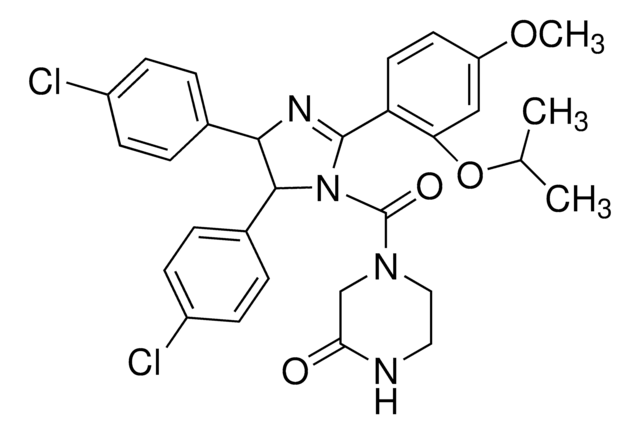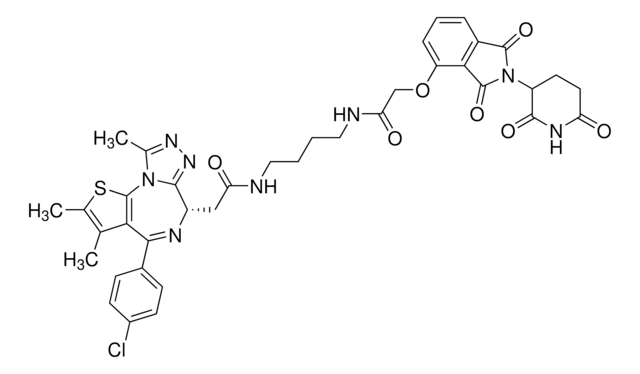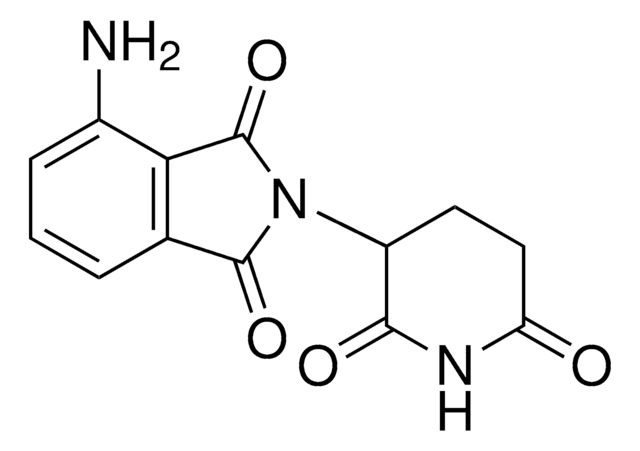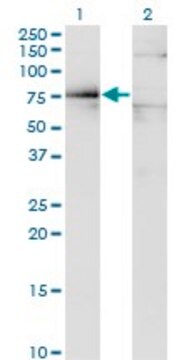SML2601
dTAG-13
≥98% (HPLC), powder, degradation tag (dTAG) system
Sinonimo/i:
(2S)-(1R)-3-(3,4-Dimethoxyphenyl)-1-(2-(2-((6-((2-(2,6-dioxopiperidin-3-yl)-1,3-dioxoisoindolin-4-yl)oxy)hexyl)amino)-2-oxoethoxy)phenyl)propyl 1-((S)-2-(3,4,5-trimethoxyphenyl)butanoyl)piperidine-2-carboxylate, d-TAG-13
About This Item
Prodotti consigliati
product name
dTAG-13, ≥98% (HPLC)
ligand
thalidomide
Livello qualitativo
Saggio
≥98% (HPLC)
Forma fisica
powder
Colore
white to beige
Solubilità
DMSO: 2 mg/mL, clear
Temperatura di conservazione
−20°C
Stringa SMILE
O=C(O[C@@H](C1=C(C=CC=C1)OCC(NCCCCCCOC2=C(C3=CC=C2)C(N(C3=O)C4CCC(NC4=O)=O)=O)=O)CCC5=CC=C(C(OC)=C5)OC)[C@@H]6CCCCN6C([C@H](C7=CC(OC)=C(C(OC)=C7)OC)CC)=O
Azioni biochim/fisiol
Altre note
Note legali
Prodotti correlati
Codice della classe di stoccaggio
11 - Combustible Solids
Classe di pericolosità dell'acqua (WGK)
WGK 3
Punto d’infiammabilità (°F)
Not applicable
Punto d’infiammabilità (°C)
Not applicable
Certificati d'analisi (COA)
Cerca il Certificati d'analisi (COA) digitando il numero di lotto/batch corrispondente. I numeri di lotto o di batch sono stampati sull'etichetta dei prodotti dopo la parola ‘Lotto’ o ‘Batch’.
Possiedi già questo prodotto?
I documenti relativi ai prodotti acquistati recentemente sono disponibili nell’Archivio dei documenti.
Contenuto correlato
Targeted protein degradation (TPD) is an emerging drug discovery strategy that uses small-molecules, such as proteolysis-targeting chimeras (PROTACs), to eradicate targeted proteins linked to disease from cells.
Il team dei nostri ricercatori vanta grande esperienza in tutte le aree della ricerca quali Life Science, scienza dei materiali, sintesi chimica, cromatografia, discipline analitiche, ecc..
Contatta l'Assistenza Tecnica.







